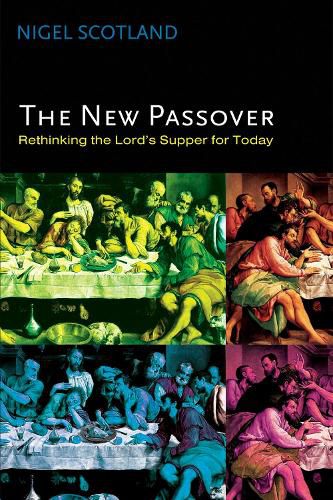Readings Newsletter
Become a Readings Member to make your shopping experience even easier.
Sign in or sign up for free!
You’re not far away from qualifying for FREE standard shipping within Australia
You’ve qualified for FREE standard shipping within Australia
The cart is loading…






This title is printed to order. This book may have been self-published. If so, we cannot guarantee the quality of the content. In the main most books will have gone through the editing process however some may not. We therefore suggest that you be aware of this before ordering this book. If in doubt check either the author or publisher’s details as we are unable to accept any returns unless they are faulty. Please contact us if you have any questions.
A recent journal article stated, There is something missing in the way the churches do Communion. Why is it that this central act of Christian worship is often so dull, dreary, and formal? Indeed at times it can be as somber as a funeral with people silently queuing cafeteria style in lines to receive a morsel of bread or a rice paper emblem of bread and then joining the wine queue for a tiny sip of wine. Strangely the churches call the Eucharist a supper, but there is no meal in the gathering. Indeed on occasions it can feel a bit like the Mad Hatter’s tea party, which was supposed have mouth-watering festive things to eat but there was only bread! Where is the convivial joy and fellowship of a Passover celebration? Why is there no overwhelming joy like that of the two disciples who encountered the risen Jesus in the breaking of bread in their house in the village of Emmaus on that first Easter evening? This book, The New Passover: Rethinking the Lord’s Supper for Today, traces the way the Christian churches changed the simple meal of the New Passover into an esoteric theological public ritual. Luther and the sixteenth-century Protestant Reformers abolished the Mass and restored the bread and wine to the people but they only half completed the task. They recognized that Jesus intended the Eucharist to be a Supper but there was nothing in their liturgies to satisfy physical hunger. This book argues that the Last Supper was a Passover meal and that churches today need to celebrate the Lord’s Supper Passover style in the context of an evening meal with ordinary bread and wine, in small groups of believers only and in houses and homes. It is to be a joyous celebration meal providing spiritual strength, fellowship, thanksgiving, and remembrance.
$9.00 standard shipping within Australia
FREE standard shipping within Australia for orders over $100.00
Express & International shipping calculated at checkout
This title is printed to order. This book may have been self-published. If so, we cannot guarantee the quality of the content. In the main most books will have gone through the editing process however some may not. We therefore suggest that you be aware of this before ordering this book. If in doubt check either the author or publisher’s details as we are unable to accept any returns unless they are faulty. Please contact us if you have any questions.
A recent journal article stated, There is something missing in the way the churches do Communion. Why is it that this central act of Christian worship is often so dull, dreary, and formal? Indeed at times it can be as somber as a funeral with people silently queuing cafeteria style in lines to receive a morsel of bread or a rice paper emblem of bread and then joining the wine queue for a tiny sip of wine. Strangely the churches call the Eucharist a supper, but there is no meal in the gathering. Indeed on occasions it can feel a bit like the Mad Hatter’s tea party, which was supposed have mouth-watering festive things to eat but there was only bread! Where is the convivial joy and fellowship of a Passover celebration? Why is there no overwhelming joy like that of the two disciples who encountered the risen Jesus in the breaking of bread in their house in the village of Emmaus on that first Easter evening? This book, The New Passover: Rethinking the Lord’s Supper for Today, traces the way the Christian churches changed the simple meal of the New Passover into an esoteric theological public ritual. Luther and the sixteenth-century Protestant Reformers abolished the Mass and restored the bread and wine to the people but they only half completed the task. They recognized that Jesus intended the Eucharist to be a Supper but there was nothing in their liturgies to satisfy physical hunger. This book argues that the Last Supper was a Passover meal and that churches today need to celebrate the Lord’s Supper Passover style in the context of an evening meal with ordinary bread and wine, in small groups of believers only and in houses and homes. It is to be a joyous celebration meal providing spiritual strength, fellowship, thanksgiving, and remembrance.